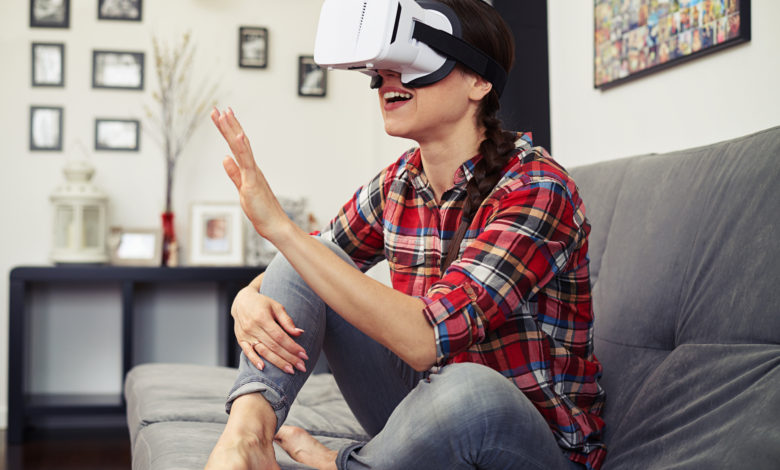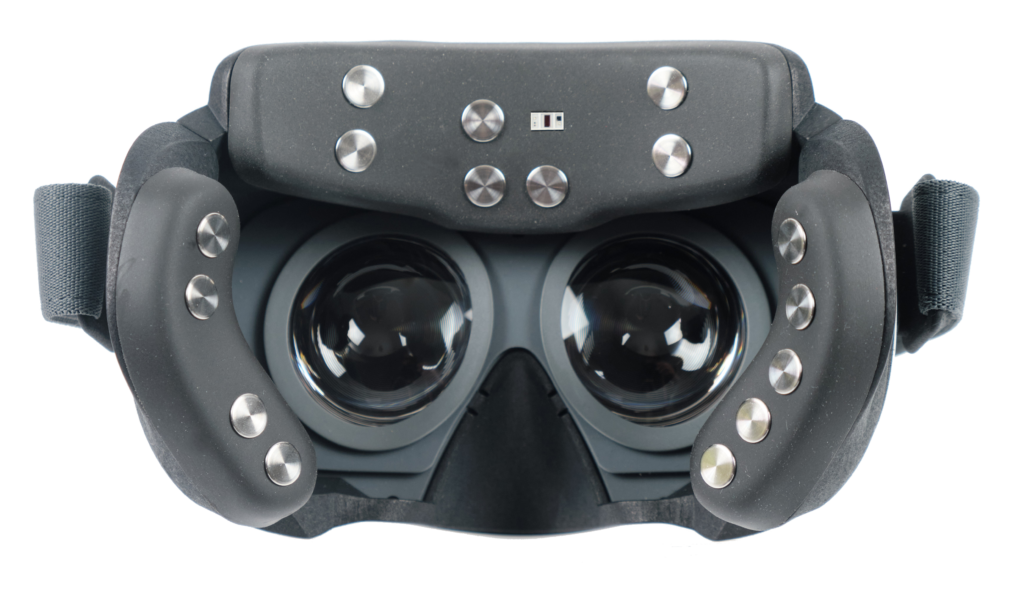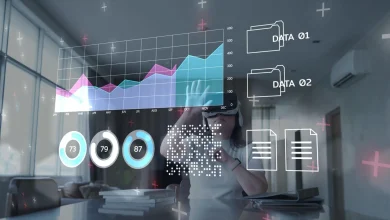
New research from the emotion-sensing wearable technology provider, emteq labs, claims that for the first time, virtual reality (VR) can be used to accurately measure moment-by-moment emotional responses.
The report titled ‘Measuring what Matters in Immersive Environments‘ explains how the technology behind emteq labs’ VR headset builds on over 40 years of research into the relationship between facial expression and emotions to unveil a new paradigm in the understanding of mental health and behavioural science.
The emotion-sensing wearable technology provider states that its VR headset emotion findings are quantified and are more accurate and effective than ever before.
Stephen Fairclough, Professor of Psychophysiology at Liverpool John Moores University explained what the report highlights for the potential future of VR by saying: “VR provides an enormous and unique opportunity to collect data through the study of behaviour in realistic environments – something that has been almost impossible in the past. This whitepaper demonstrates how the emteq lab’s system is enabling research to break new frontiers and VR to not only resemble real-life scenarios for research but be adapted in real-time to measure how users respond. Academics and researchers like myself can measure and understand emotion in a way we’ve never been able to do before. This opens the door for deepening our knowledge of human behaviour and in turn, enables us to develop treatments, particularly for mental health, that can actually resonate with individuals and make a difference.”
VR has become increasingly popular due to the COVID-19 pandemic with businesses moving to digital solutions and wanting a way to immerse themselves in these virtual situations such as meetings, conferences, job fairs, and conferences.
The virtual concert provider, Wave, recently raised $30m for its live digital events platform proving VR is an area people are willing to invest in and shows potential for the future. Companies such as Wave could well become more valuable by building in data collection for moment-by-moment emotional responses that emteq labs research claims the technology can do.
The emotion-sensing wearable technology provider claims that using a comprehensive approach to get measurements will enable a better understanding of the interaction between emotion and cognition. Better data would also possibly help create new treatments for mental health conditions with examples being anxiety, depression, and post-traumatic stress disorder (PTSD).
Traditionally, measurement of emotion has relied on rudimentary questionnaires to gauge how individuals feel in response to a given stimulus. However, emteq labs highlight that this might soon be a thing of the past.
Oversimplification of the complexities of emotion can also introduce inescapable flaws such as human bias. Equally, frameworks like Ekman’s facial action coding system (FACS), which evaluates facial expressions, apparently do not account for the fact that not all individuals experience emotions in the same way.

The emotion-sensing wearable technology provider wrote that its aim is not to disregard old school approaches but to use its latest VR technology and Russell’s model of affect to become powerful tools that enable the correlation of arousal with valence.
Graeme Cox, Co-founder, and CEO of emteq labs mentioned what the research shows by saying: “Embracing both valence and arousal in the development of our wearable technology has enabled us to measure a person’s intent as well as their emotional state, which is incredible. I am delighted to share this research, which looks at how far we’ve come and the incredible possibilities that lie ahead in research and development using our VR technology.”
The release of this research from the emotion-sensing wearable technology provider which suggests VR can be used to accurately measure moment-by-moment emotional response follows the prediction from IDC that the VR headset market is set to grow by 46.2% in 2021.
emteq labs explained that by monitoring multiple physical responses such as heart rate, electromyography (EMG), skin conduction, and eye-tracking, emotion can be measured objectively to potentially create a highly accurate 3D picture of a person’s emotions.
This was demonstrated in what the emotion-sensing wearable technology provider described as the world’s largest-ever multimodal biometric data collection in VR. It took place at the Science Museum in 2019 and was led and co-ordinated by emteq labs along with researchers at Bournemouth University.
Charles Nduka, Co-Founder and Chief Scientific Officer at emteq labs commented on the need for various approaches in regard to research by saying: “Developing new treatments requires an understanding of the range of “normal’ responses to interventions, particularly for important healthcare issues such as anxiety and depression. We hope that we will begin the process of understanding the range of behavioural responses that will act as a baseline for future research and treatments of mental health conditions.
emteq labs claim the research to be from the first study of its kind, which is due to be published later this year. The research programme is said to have explored the use of VR in the treatment of mental health conditions by creating controlled scenarios to stimulate physiological-emotional responses that the VR headset could then monitor.




